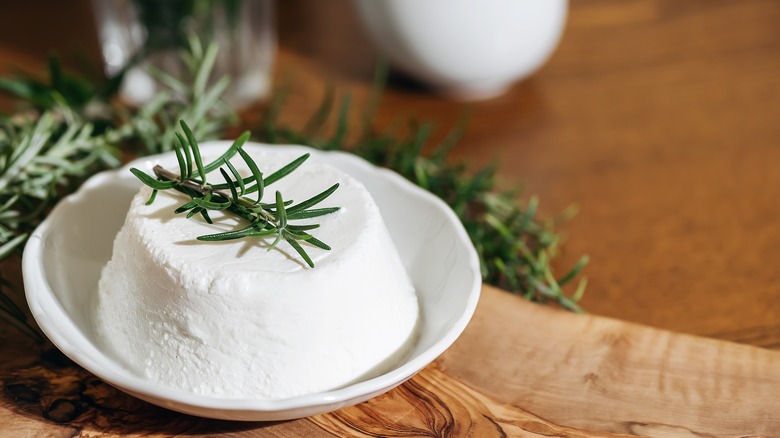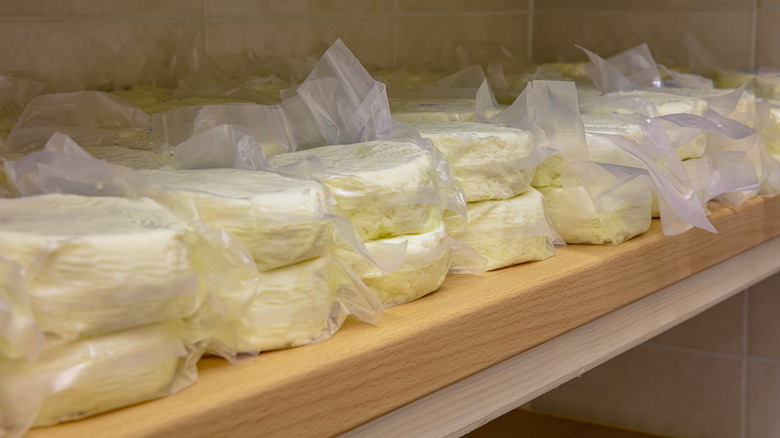Here's How Long Ricotta Cheese Stays Good For After Opening
Just imagine getting ready to layer your lasagna, but the forgotten container of ricotta cheese has developed some mold on its lid. One of the most disappointing moments in a home kitchen is when you reach into the refrigerator for the key ingredient you thought you had stowed away, only to find it's expired.
Ricotta cheese is smooth, fresh, and versatile in its uses but shouldn't be left to age in the refrigerator for a month. According to the USDA, opened ricotta cheese will stay good in the refrigerator for up to a week at most. While ricotta can of course be used for a lasagna dinner, it can also get dolloped onto a pizza or even baked into a cheesecake. In fact, straining ricotta cheese is great for baked goods as its reduced liquid content can lead to a firmer, creamier cake. Even more surprising, making ricotta cheese at home isn't a heavy lift and doesn't take the knowledge of a cheesemonger to accomplish.
However, the only way for you to make the best lasagna or to get the most use out of your homemade ricotta is to use it before it starts to turn. Storing the opened ricotta correctly and checking for signs of spoilage are the best ways to ensure the cheese lasts for its full lifespan.
How to know when to get rid of opened ricotta cheese
Once opened, ricotta cheese should be stored covered and refrigerated at 40 degrees Fahrenheit or less. Even with this proper storage method, ricotta will still only stay good for about a week.
As mentioned, ricotta is a soft cheese that carries excess moisture which should be strained in some recipes. That moisture is what contributes to the cheese's short shelf life, creating a homey environment for bacteria to thrive. Exposure to air will also speed up the ricotta cheese spoiling process, which is why keeping it covered in the refrigerator is so important.
If you're unsure about how good your opened ricotta cheese might be or don't completely trust the store's printed expiration date, there are signs to indicate if the cheese has gone bad. For example, if you see any discoloration like blue, brown, or yellow it can mean mold has started to grow in the container and could spread. Ricotta generally has no smell to it, so any sour aroma is a bad sign. Some hard cheeses can exhibit mold and not be fully spoiled, but you can't cut away bad pieces of ricotta and be confident the rest is fine. If there are any signs of spoilage, the whole container has gone bad.

